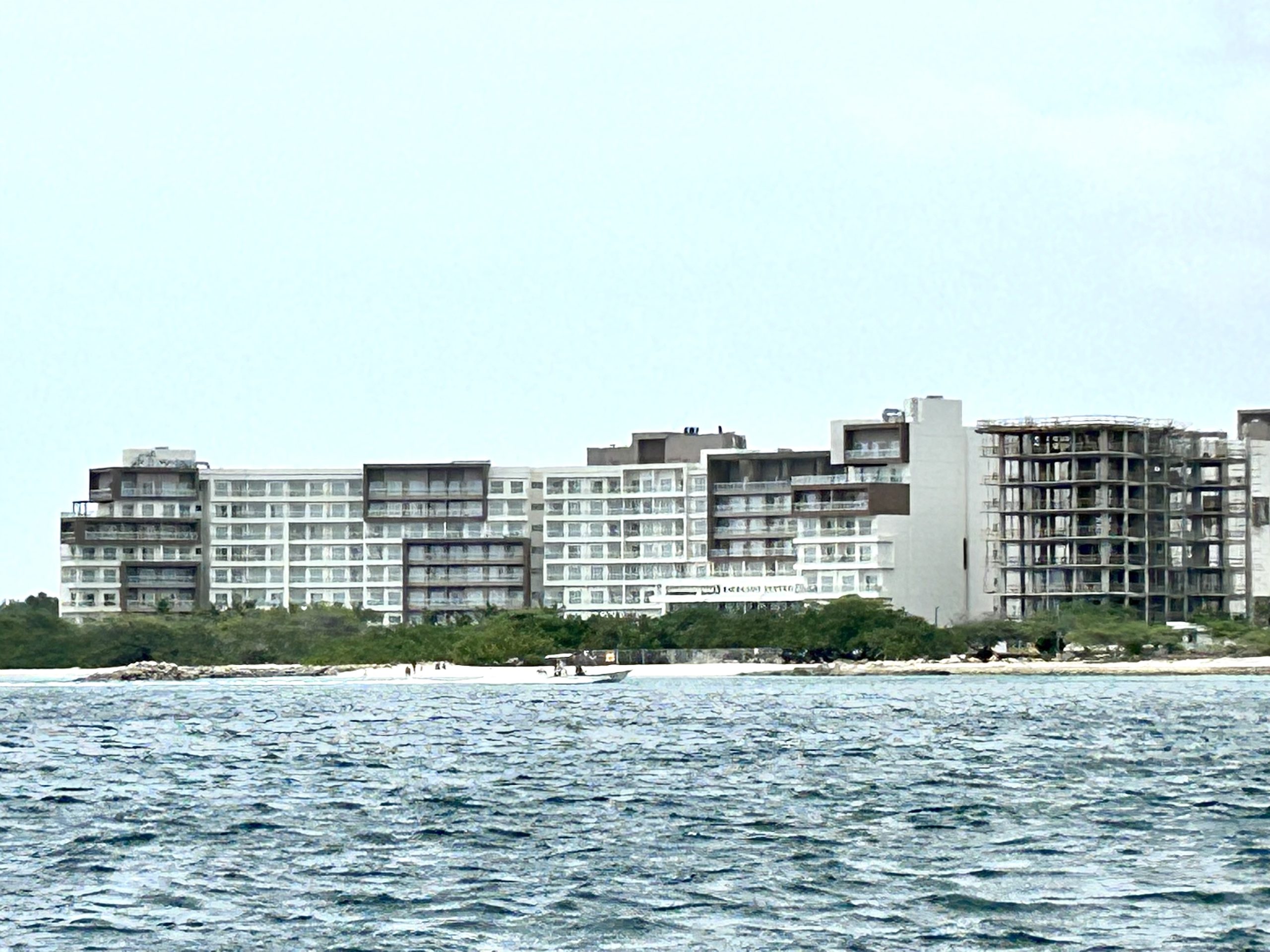Embassy Suites Beach Plans Raise Concerns About Ongoing Impact on Aruba’s Environment
As the Embassy Suites’ legal battle continues over their beachfront development in Aruba, other concerns are surfacing regarding the potential long-term impact of their plans on the delicate ecological balance of the area. While the initial focus has been on the removal of seagrass and protected species to create beach access, a closer look triggered my industry insiders eveals that these changes might be just the tip of the iceberg for the area’s transformation.
“Yerba di Caña”
The controversy began with removing “Yerba di Caña,” a protected seagrass species, which led to legal action and fines imposed by the court. The court’s decision highlighted the importance of adhering to environmental laws and regulations, particularly regarding projects that could harm the island’s unique natural resources.
Construction on the beach?
However, recent analysis indicates that the Embassy Suites is likely to have broader plans for the beach area than perhaps initially communicated. While the initial concern was focused on removing seagrass for beach access, there are indications that Embassy Suites is likely considering a series of additional developments that could have far-reaching environmental consequences. Embassy Suites will likely – sooner or later and like other hotels have done over the years – want to construct various structures on the beachfront once they get the permission to develop the beachfront. This includes building a hut or bar for beachgoers to enjoy drinks on the sand. The distance from the current pool bar is too far away to properly serve guests on the beach. After all no body likes to drink warm beer or watered down piña coladas. Additionally, they would require the installation of multiple bathrooms to serve the giuest adn the of course a grill for some beachside snacks and eventually, a restaurant to generate rental or F&B revenue. The icing on the cake would be the addition of a pier. After all, why not go all the way?
More impact on the environment
Such developments would undoubtedly alter the landscape and atmosphere of the beach area significantly. Environmentalists and residents are concerned that each new addition could contribute to the degradation of the natural beauty that makes Aruba’s beaches so appealing to visitors and locals alike.
This raises important questions about the potential cumulative impact of Embassy Suites’ plans. While each addition might seem innocuous, multiple structures, increased foot traffic, and potential waste disposal could damage the environment, disrupt local ecosystems, and compromise the charm that draws people to Aruba’s shores.
Overall impact being considered?
One crucial consideration is whether the Ministry of Environment is factoring in these potential future developments when evaluating the overall impact of Embassy Suites’ plans and how transparent Embassy Suites has been or is being with their development plans. While removing seagrass and protected species has garnered attention, the broader ecological impact of ongoing development should be noticed.
Experts and environmentalists urge the government to take a holistic view of the situation. It’s vital to consider the immediate changes and the long-term consequences of each step in the development process. Striking a balance between economic interests and environmental preservation is a delicate challenge, but it’s one that Aruba’s unique ecosystem demands.
Next?
As the Embassy Suites case unfolds, it becomes clear that the decision reached will set a precedent for how Aruba navigates similar situations. The Minister of Environment, Ursell Arends, faces the crucial responsibility of maintaining the delicate balance between development and conservation. Aruba’s beaches and natural treasures are the heart and soul of the island’s allure, drawing tourists worldwide. While development is essential for economic growth, it must not come at the cost of irreparable environmental damage. The decisions made now will shape Aruba’s future for generations to come, making it imperative that all potential impacts are thoroug













